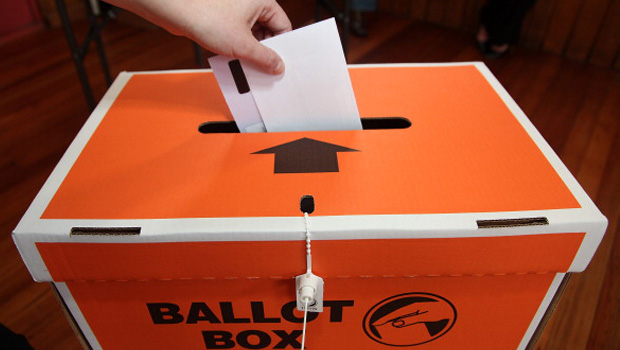Politics
New Electoral Laws Prompt Concerns Over Voter Accessibility

The New Zealand government is set to implement significant changes to its electoral laws, raising questions about the impact on voter accessibility ahead of the upcoming general election in 2024. Voters will have a twelve-day advanced voting period during which they must ensure their enrollment details are correct, as no changes will be accepted once this period begins.
The initiative has sparked debate, particularly regarding its timing and implications. According to statistics, in 2023, approximately 134,000 individuals changed their addresses or electorates during the advanced voting period, while nearly 100,000 people enrolled to vote. These figures indicate that many voters may not be fully prepared for the new regulations, which could hinder participation.
Paul Goldsmith, New Zealand’s Minister of Justice, is advocating for these changes, citing the need to reduce the administrative burden on the Electoral Commission. However, officials have cautioned that these amendments could potentially decrease voter enrollment rates and turnout, as well as increase the number of disallowed votes.
Concerns About Accessibility and Participation
Critics argue that making the voting process more complex could disenfranchise many citizens. Francesca Rudkin expresses concern that these changes prioritize administrative efficiency over voter accessibility. She emphasizes that voting should be made as accessible as possible to ensure that all New Zealanders can exercise their democratic right.
Goldsmith contends that the changes will result in faster election outcomes by minimizing the processing of special votes. However, critics question whether the speed of results should take precedence over ensuring that every eligible voter has the opportunity to participate. The call for educational campaigns on the new rules is seen as insufficient, particularly given the high number of individuals who may not be aware of the changes.
The Electoral Commission has noted that the current system, which allows for last-minute changes, places a significant burden on election administration. As David Seymour pointed out, voters must take responsibility for their registration and ensure that they are informed. Yet, the concern remains that those who are less organized may be disproportionately affected by these new rules.
Goldsmith faces a challenging task as he navigates the balance between administrative efficiency and voter engagement. The upcoming election will serve as a crucial test of these changes, with the potential for significant implications on voter turnout and representation in Parliament.
As the nation prepares for the 2024 General Election, it is essential for voters to understand the new regulations and ensure their enrollment details are accurate well in advance of the election date. Failure to do so could lead to a reduction in participation, undermining the democratic process that the government aims to uphold.
-

 Sports2 months ago
Sports2 months agoNetball New Zealand Stands Down Dame Noeline Taurua for Series
-

 Entertainment2 months ago
Entertainment2 months agoTributes Pour In for Lachlan Rofe, Reality Star, Dead at 47
-

 Entertainment2 weeks ago
Entertainment2 weeks agoNew ‘Maverick’ Chaser Joins Beat the Chasers Season Finale
-

 Sports2 months ago
Sports2 months agoSilver Ferns Legend Laura Langman Criticizes Team’s Attitude
-

 Politics3 weeks ago
Politics3 weeks agoNetball NZ Calls for Respect Amid Dame Taurua’s Standoff
-

 Entertainment2 months ago
Entertainment2 months agoKhloe Kardashian Embraces Innovative Stem Cell Therapy in Mexico
-

 World3 months ago
World3 months agoPolice Arrest Multiple Individuals During Funeral for Zain Taikato-Fox
-

 Sports2 months ago
Sports2 months agoGaël Monfils Set to Defend ASB Classic Title in January 2026
-

 Entertainment4 weeks ago
Entertainment4 weeks agoTyson Fury’s Daughter Venezuela Gets Engaged at Birthday Bash
-

 Sports4 weeks ago
Sports4 weeks agoHeather McMahan Steps Down as Ryder Cup Host After Controversy
-

 Entertainment4 weeks ago
Entertainment4 weeks agoTyson Fury’s Daughter Venezuela Gets Engaged at Birthday Bash
-

 World4 weeks ago
World4 weeks agoNew Zealand Firefighters Plan Strike on October 17 Over Pay Disputes




















